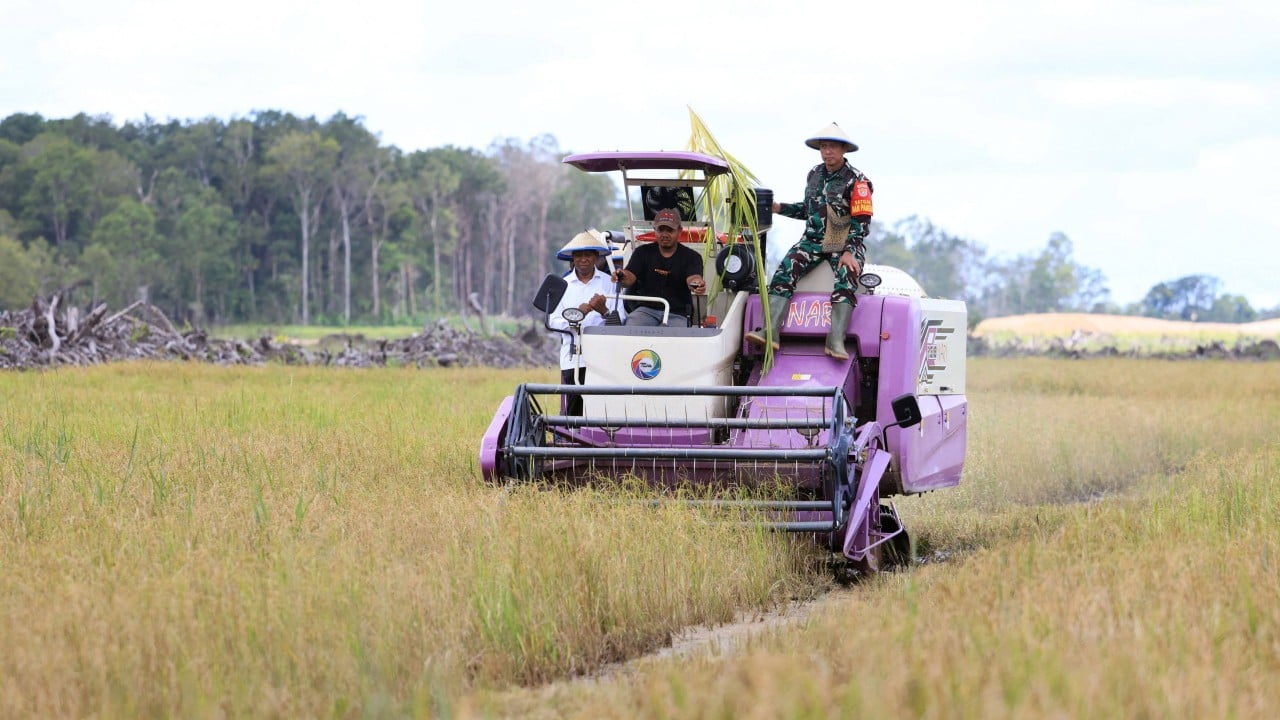President Prabowo Subianto’s ambitious plan to boost Indonesia’s food self-sufficiency is fuelling a major expansion of agricultural projects into regions such as Papua – a strategy viewed by some as a path to greater national resilience, but which has also raised concerns among environmental organisations and advocates for Indigenous rights.
Advertisement
During his inaugural presidential speech in October, Prabowo said he wanted Indonesia to become a “global food estate” – a sentiment he reiterated last week when he mentioned the country would consider exporting rice.
“Previously we have been importing and importing … now we should help other countries,” he said. “We will have food self-sufficiency, we will be [the] world’s food barn.”
Home to more than 280 million people, Indonesia has long relied on food imports – particularly for staples like rice, wheat and sugar. During the last crop season, the government raised the import quota by 1.6 million tonnes because of insufficient domestic production caused by dry weather, marking its highest rice purchases since the 1997-1998 period.
However, the administration is now trying to lower imports with production recovering. Japan and Malaysia, among other countries, have shown interest in sourcing rice from Indonesia.
Advertisement
Analysts said that while the government is exploring export opportunities, its immediate focus remains securing stable domestic food reserves. The food estate programme – which involves creating large-scale agricultural zones – is a central component of that strategy.
Initially accelerated under former president Joko Widodo to counter global supply chain shocks during the pandemic, the scheme has designated large portions of Kalimantan and Papua for agricultural cultivation. Officials said the goal is to improve national food resilience and support rural development.

